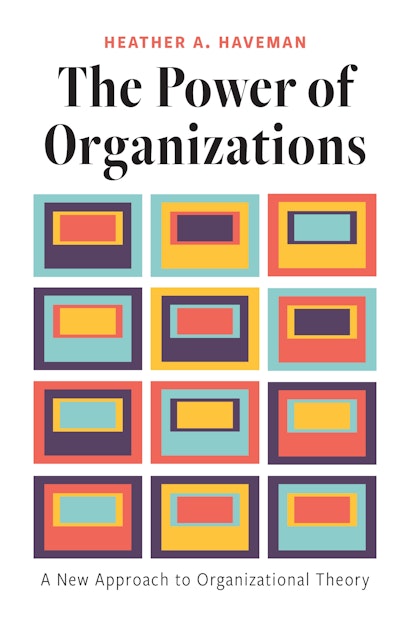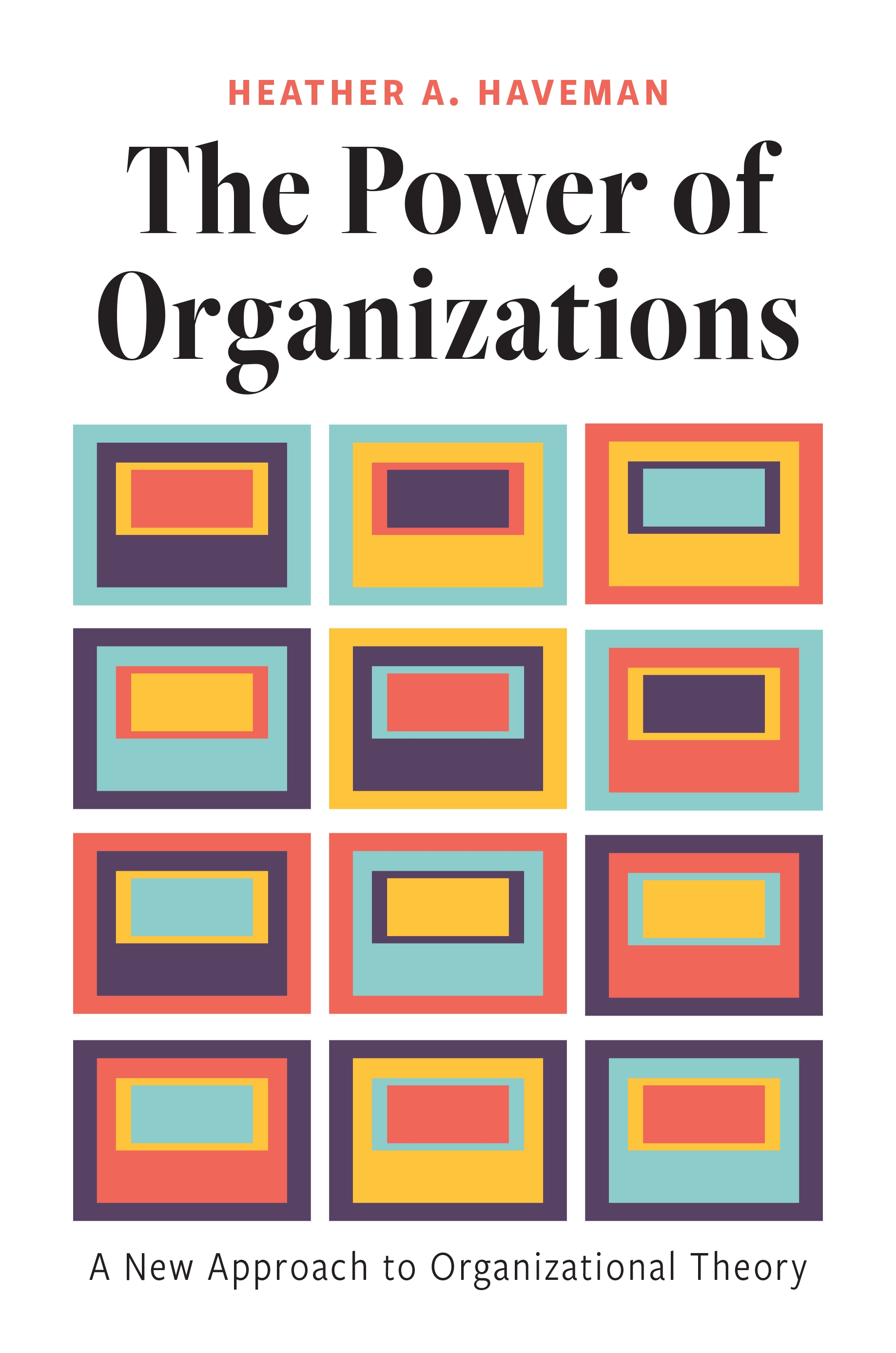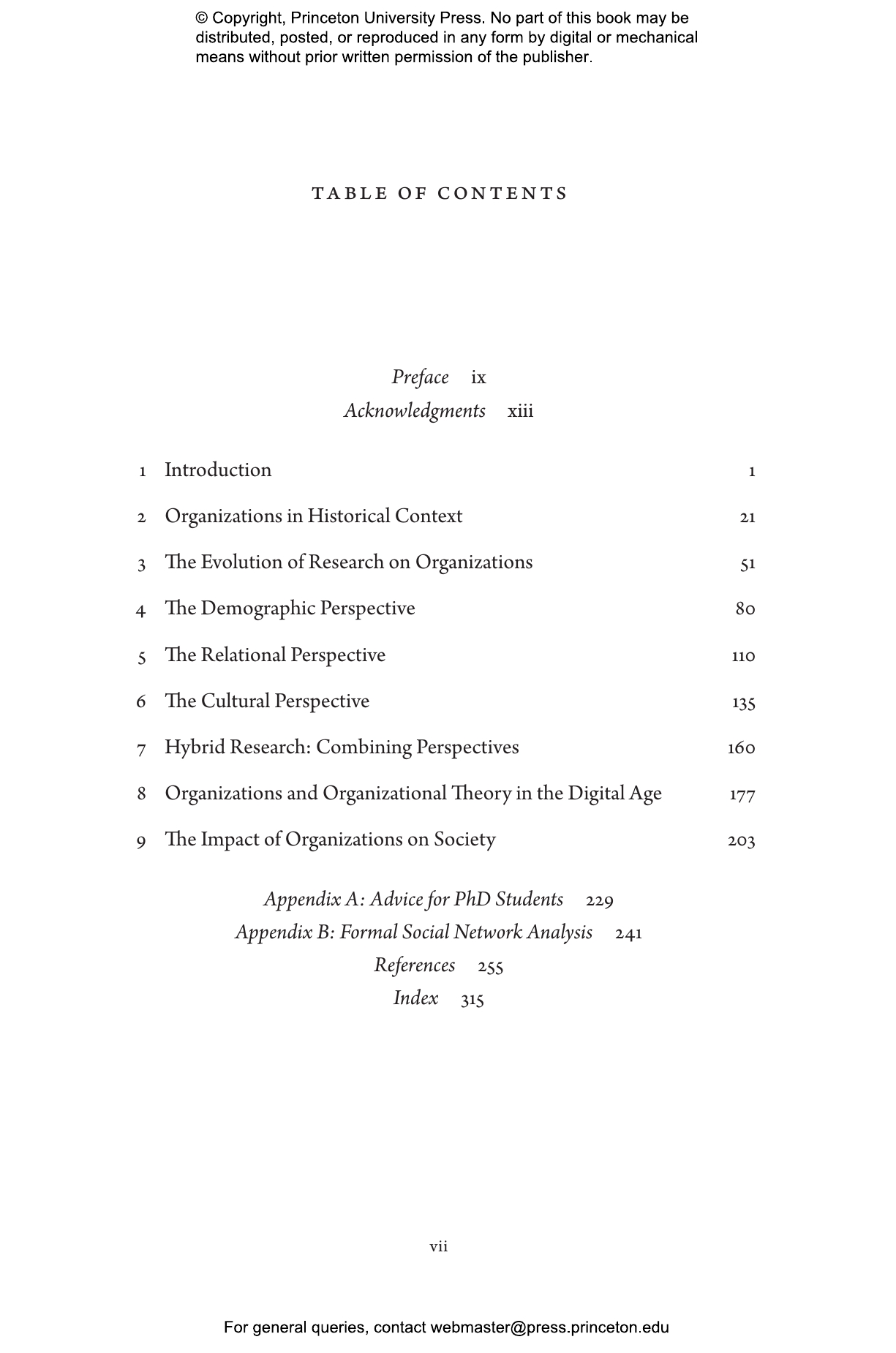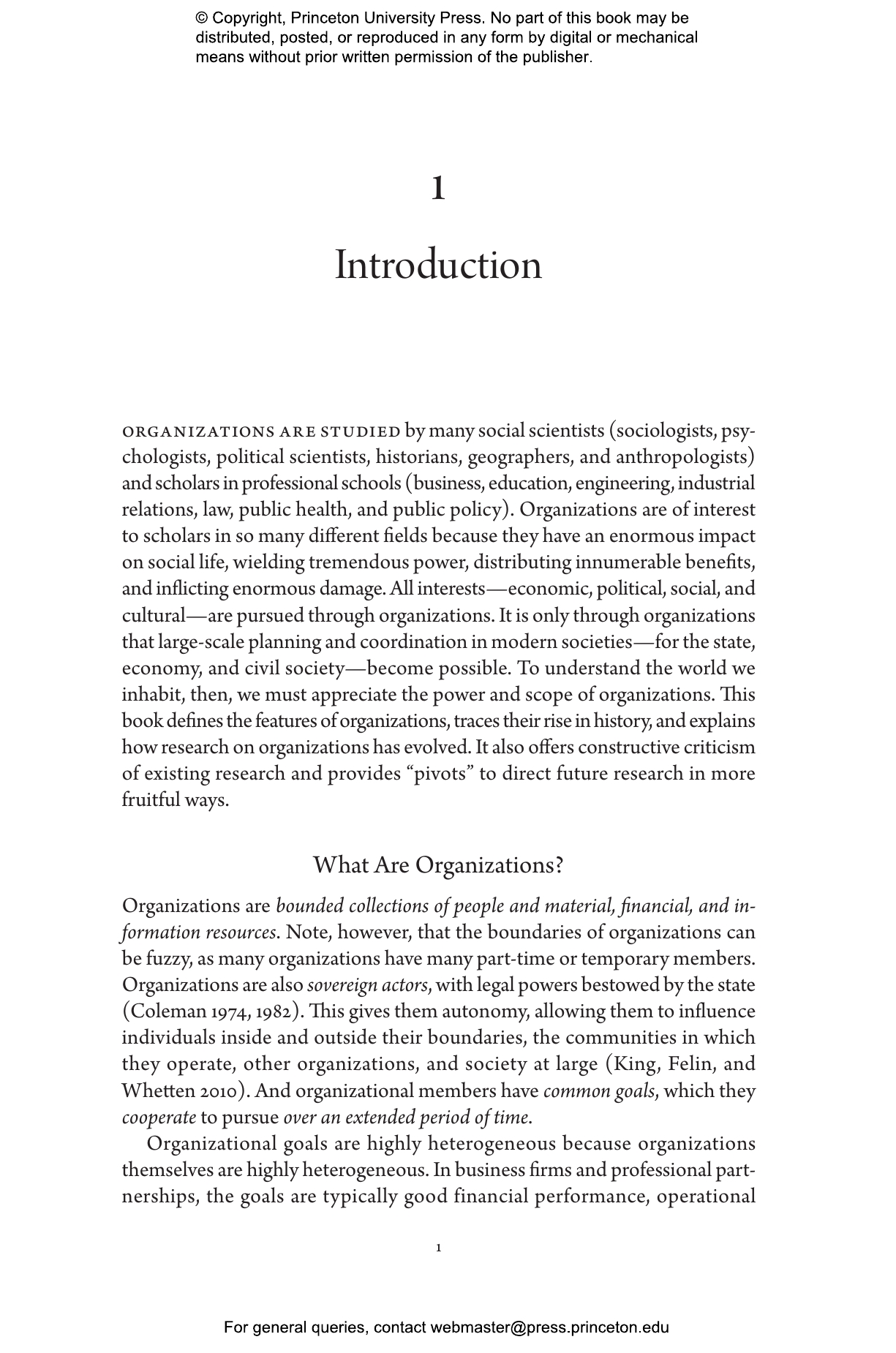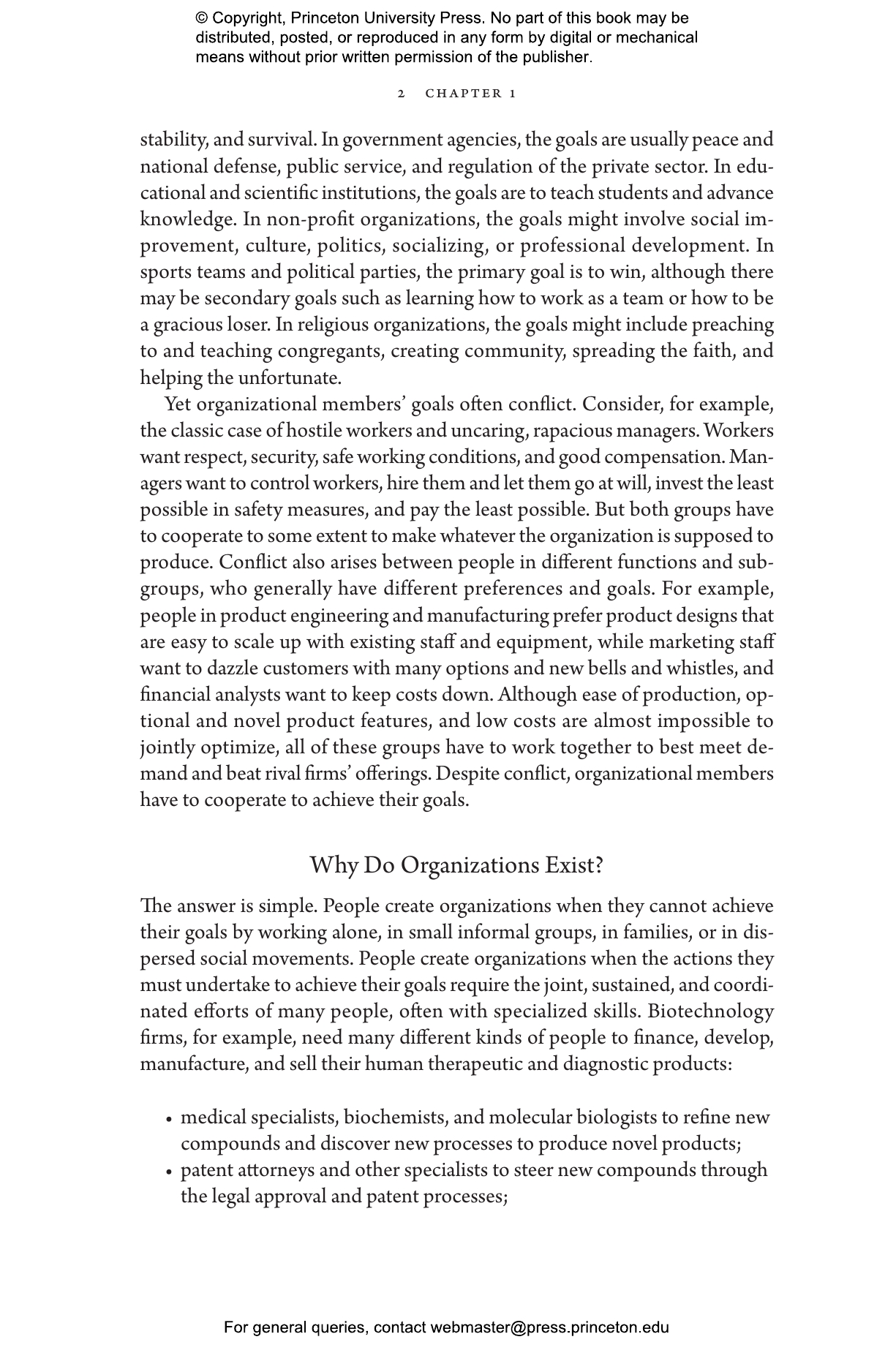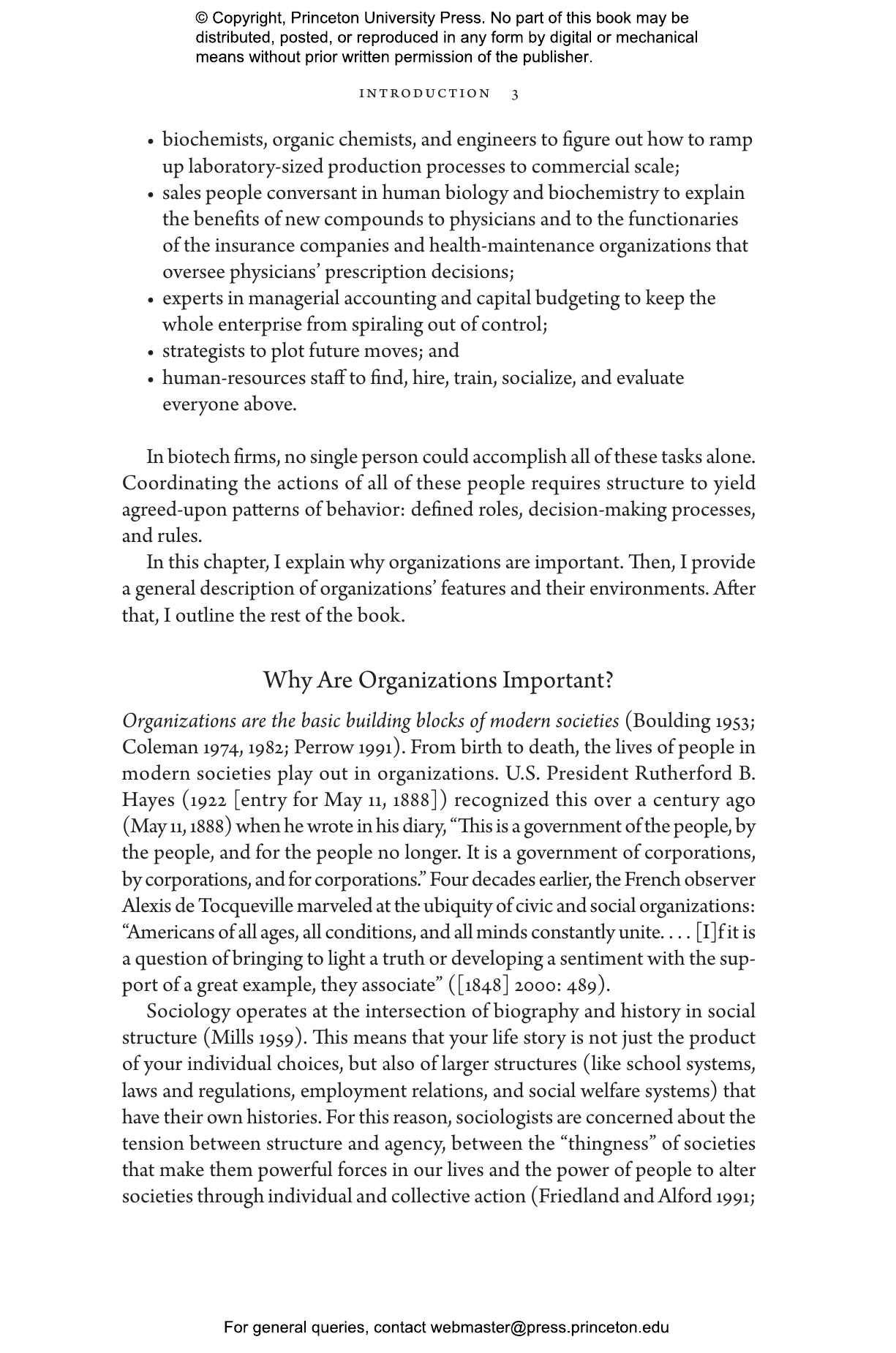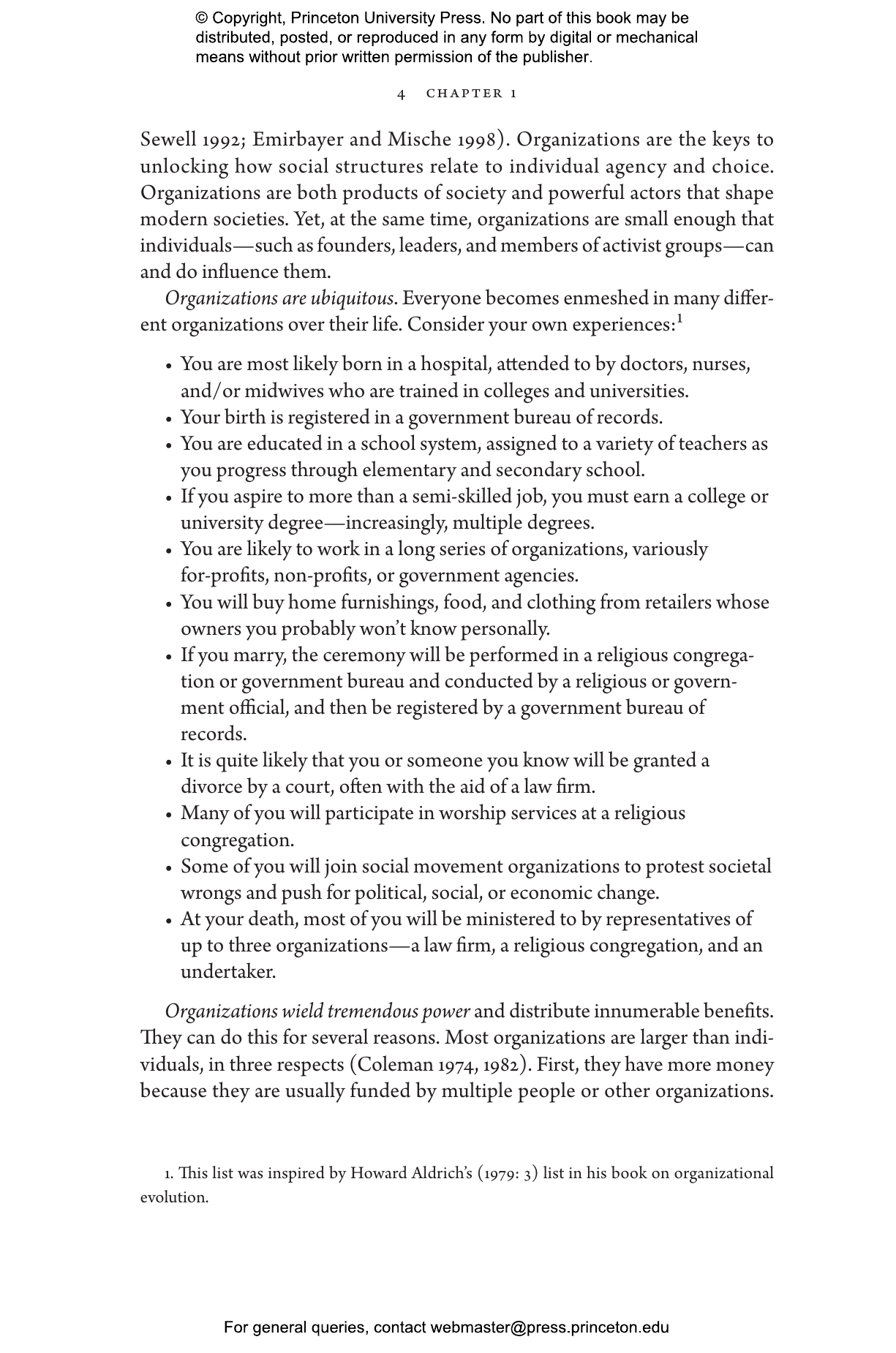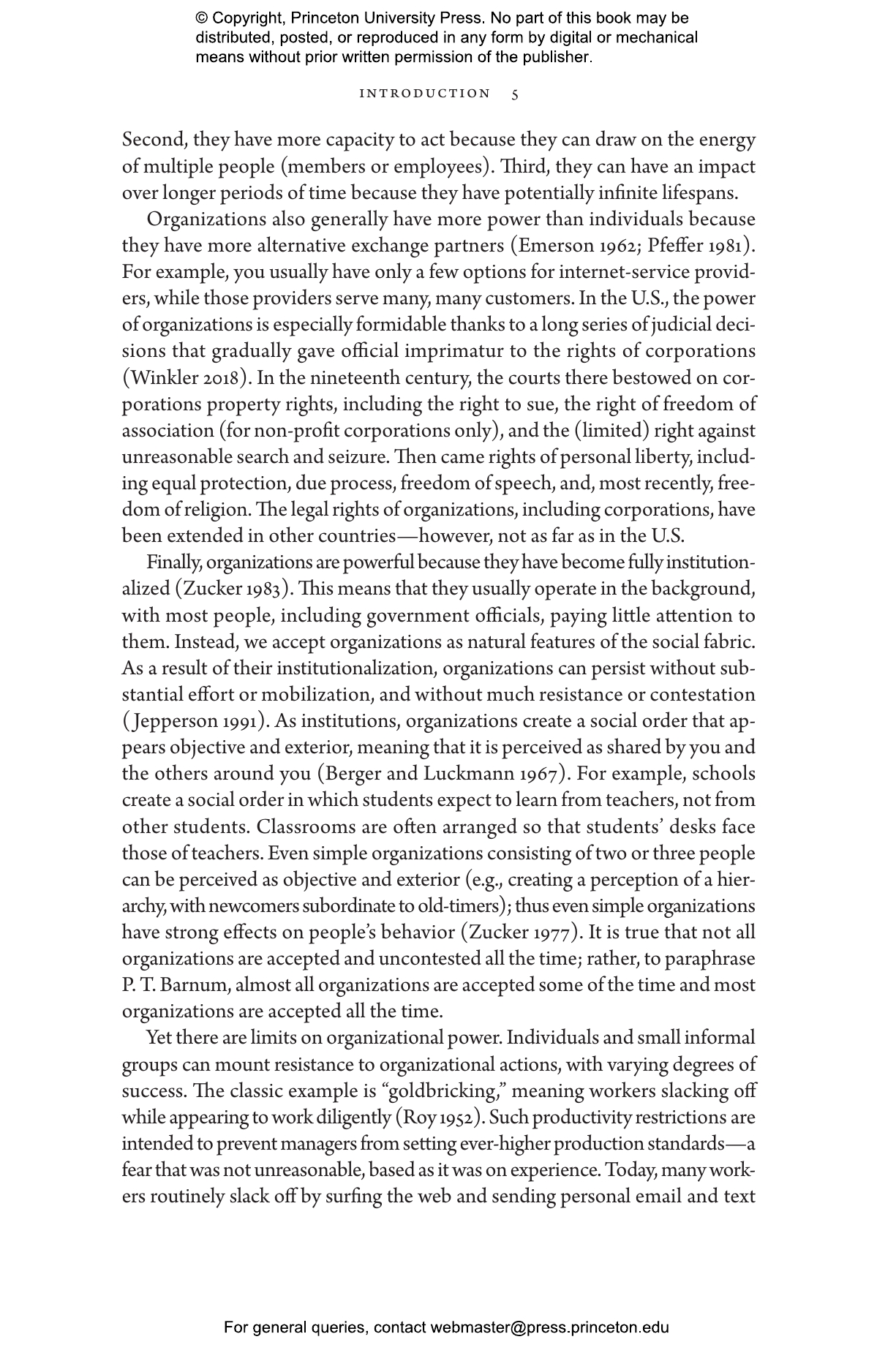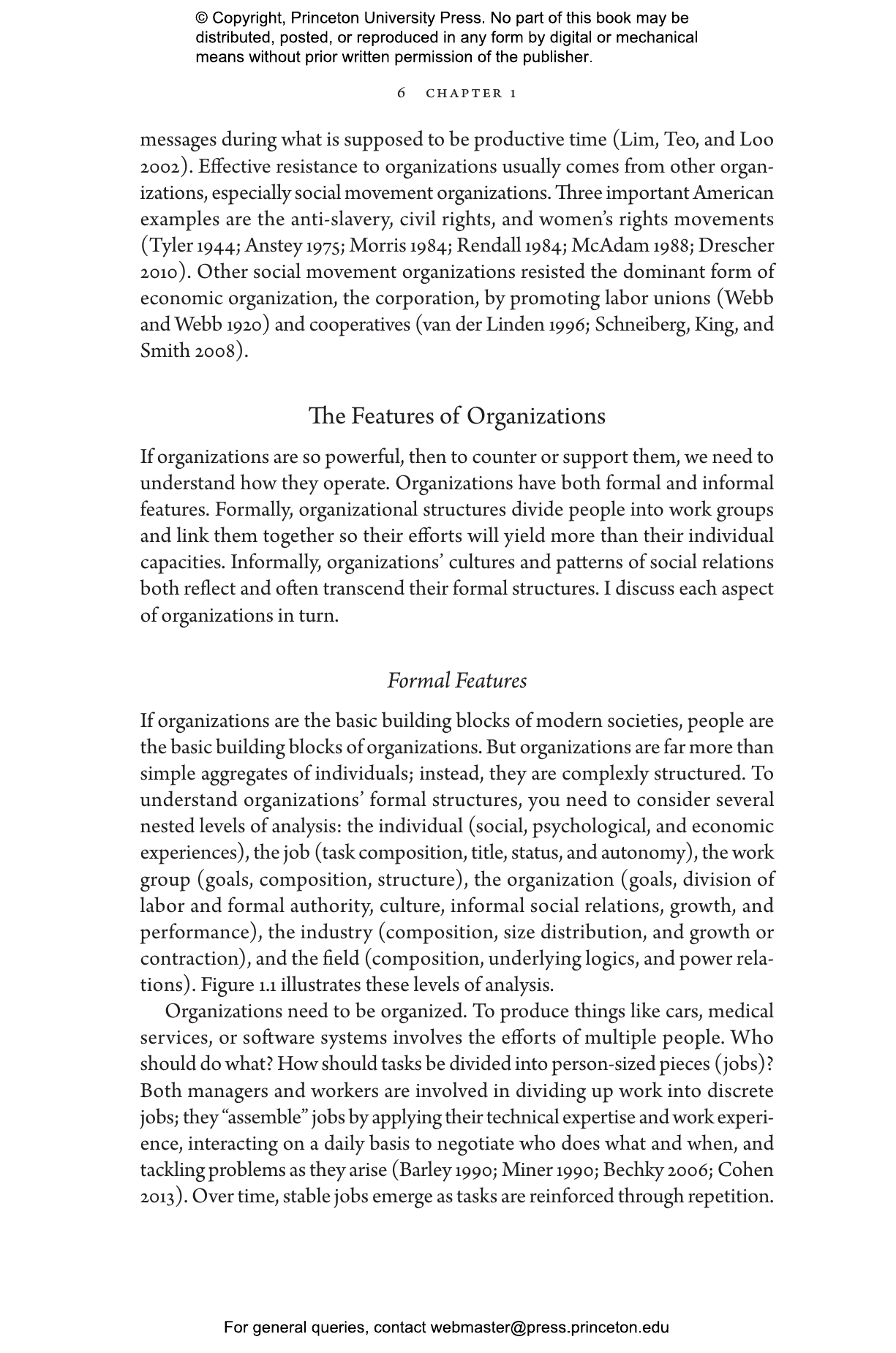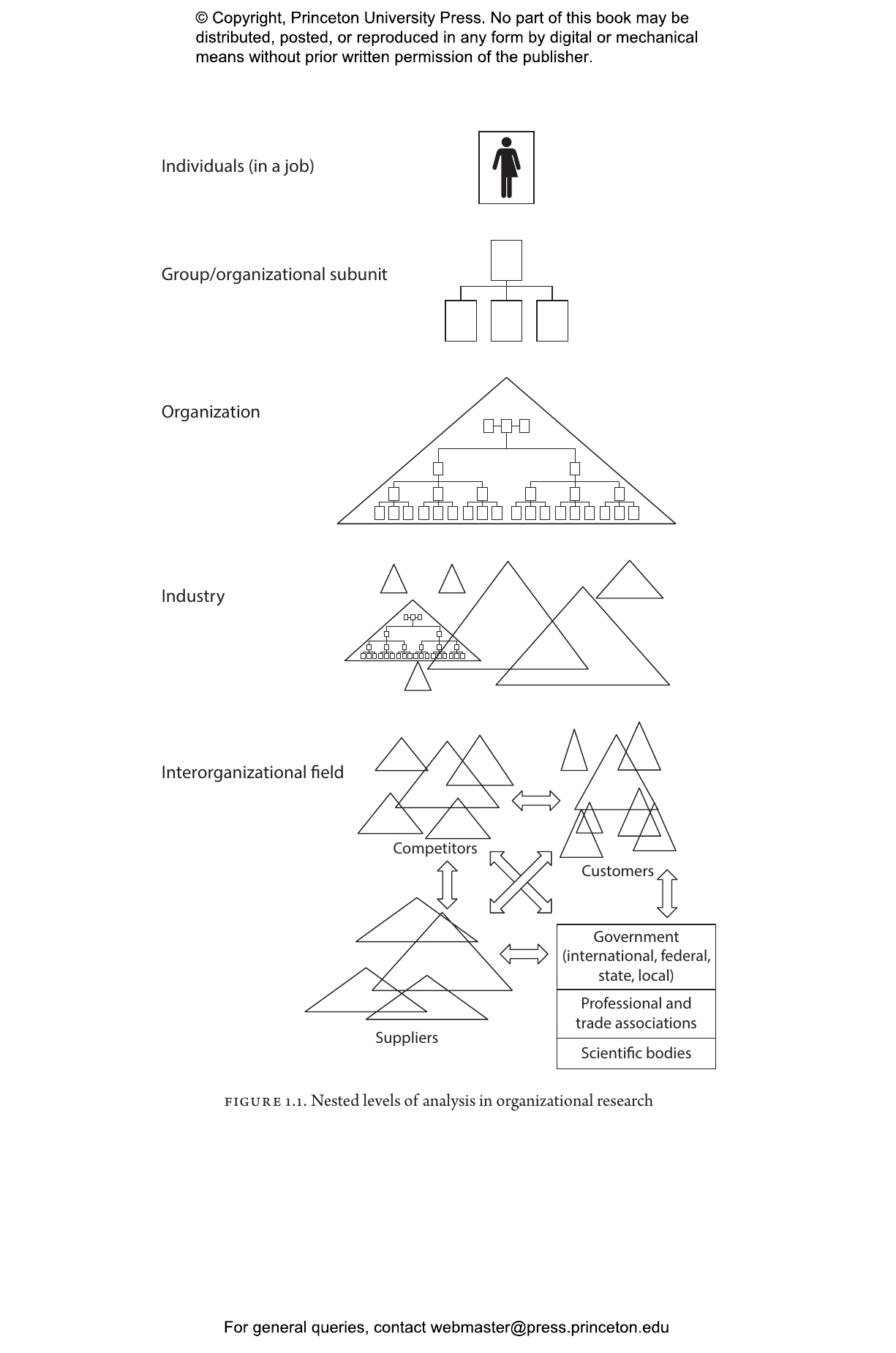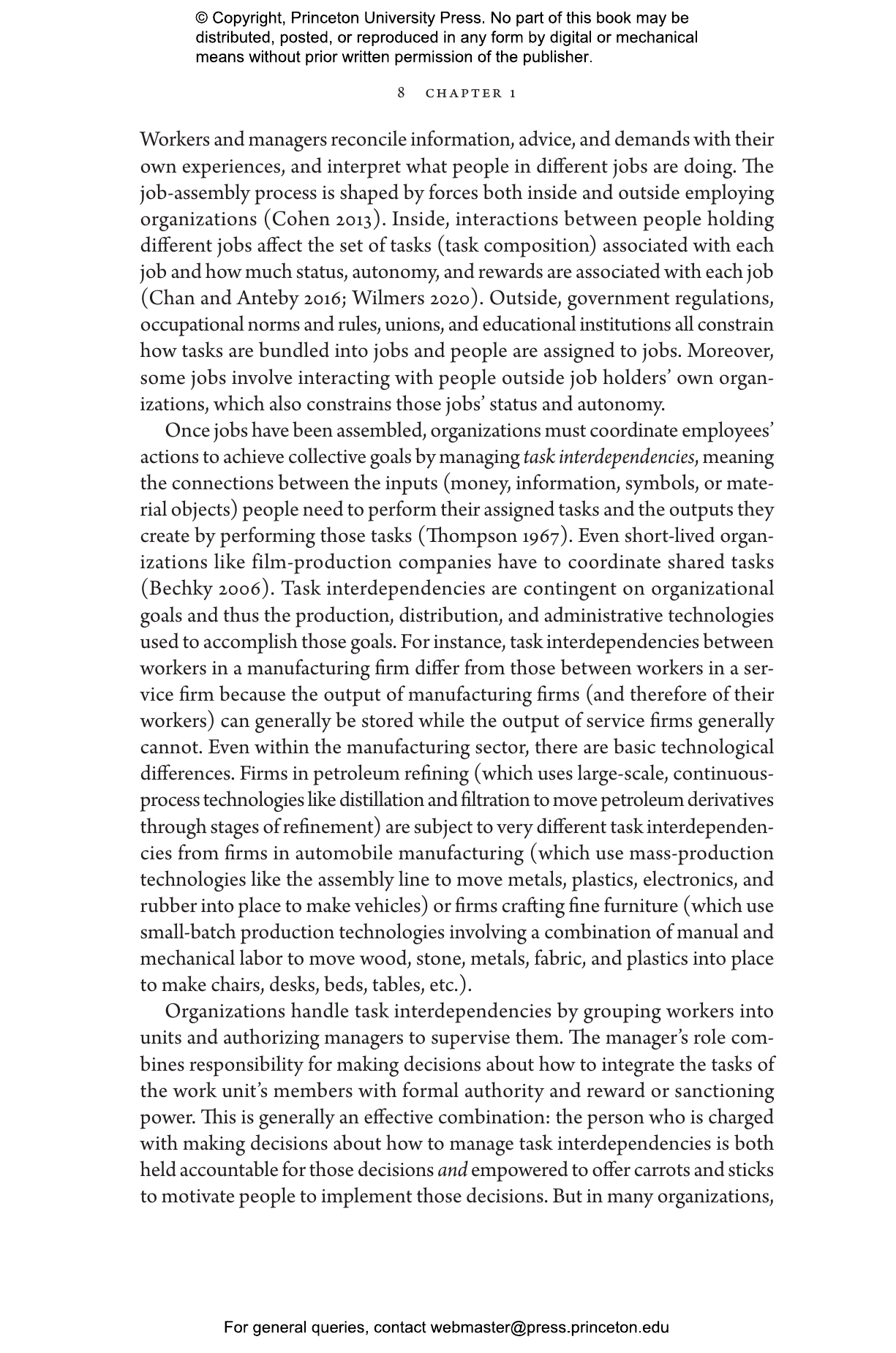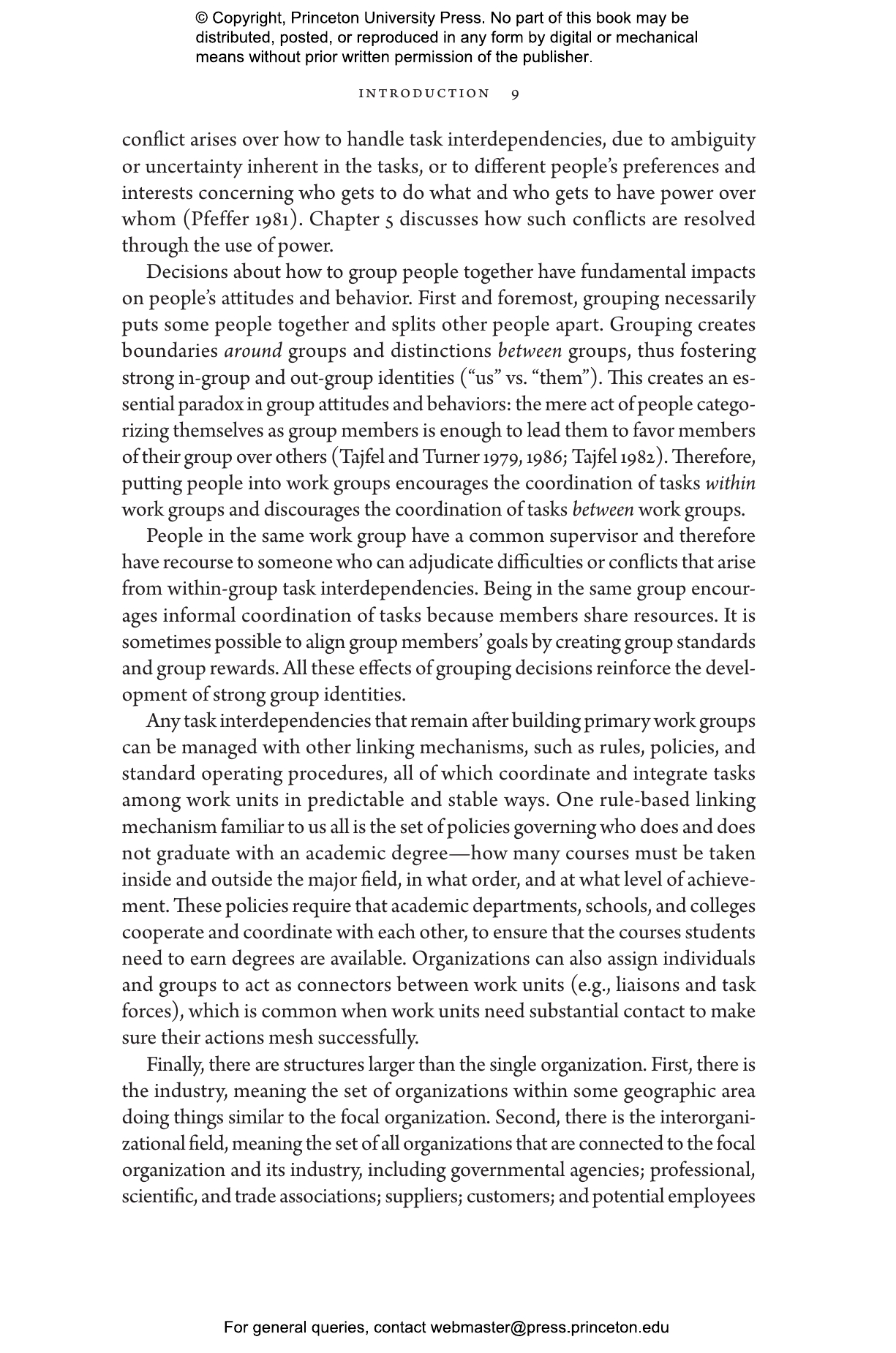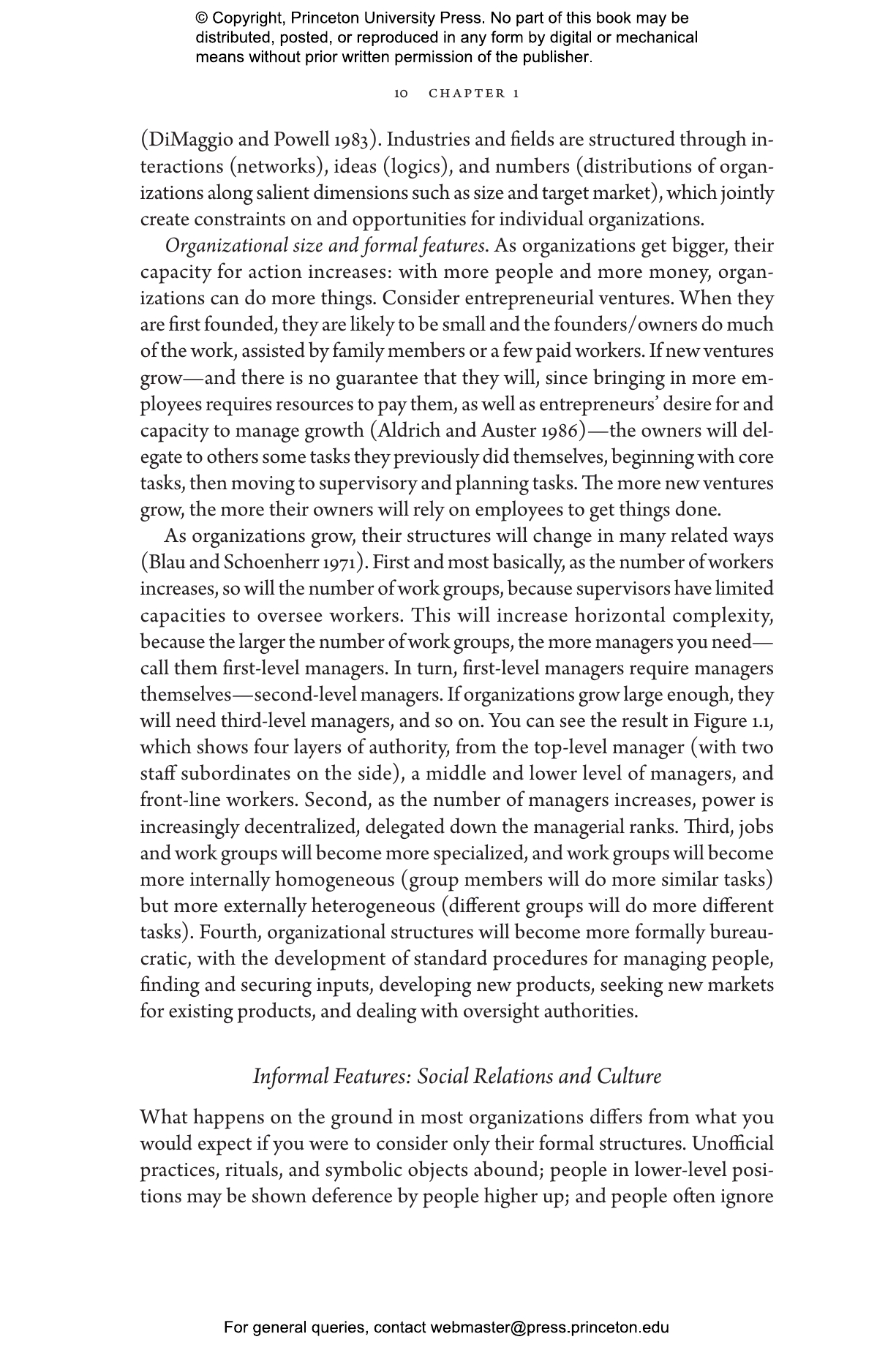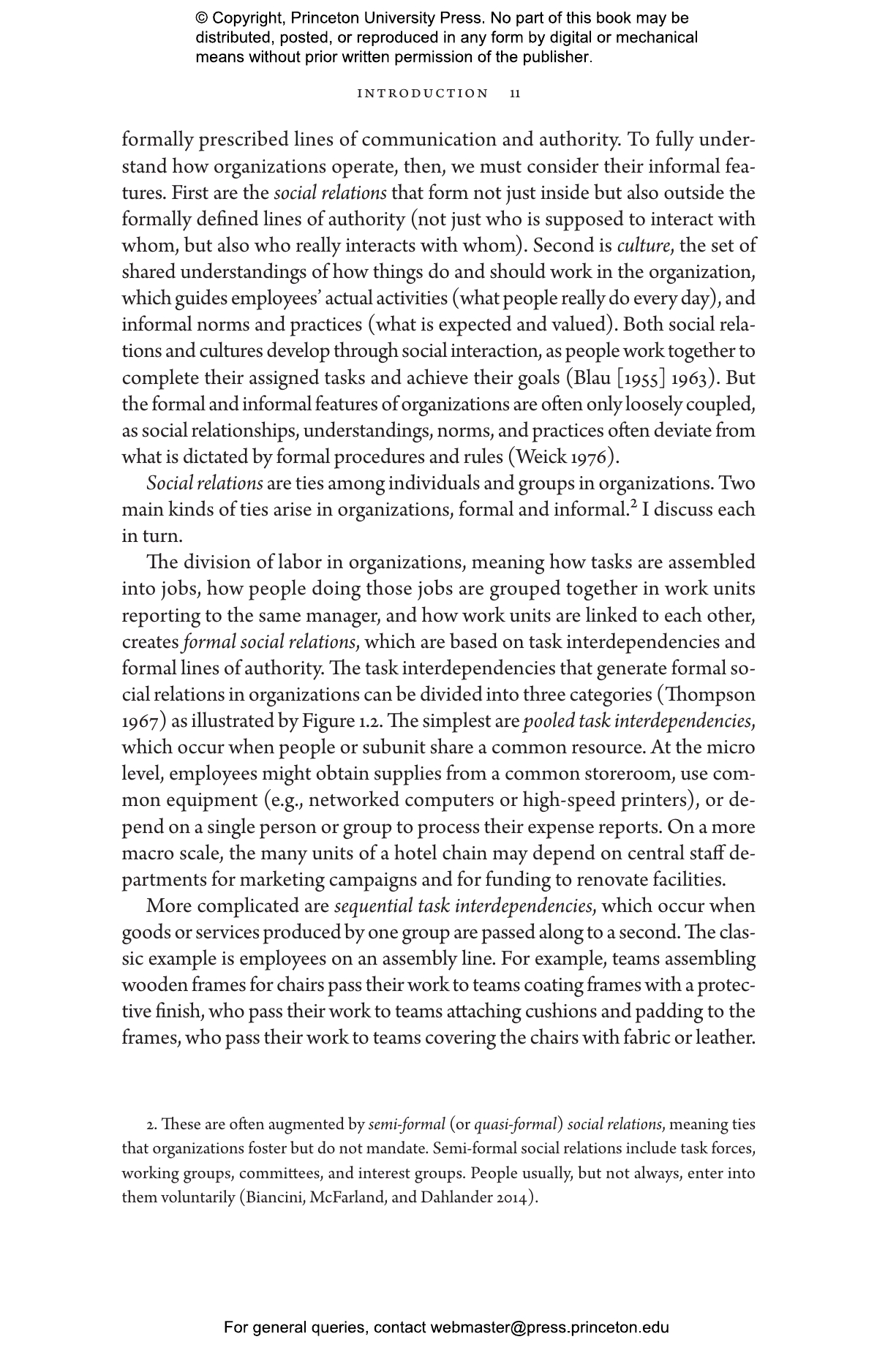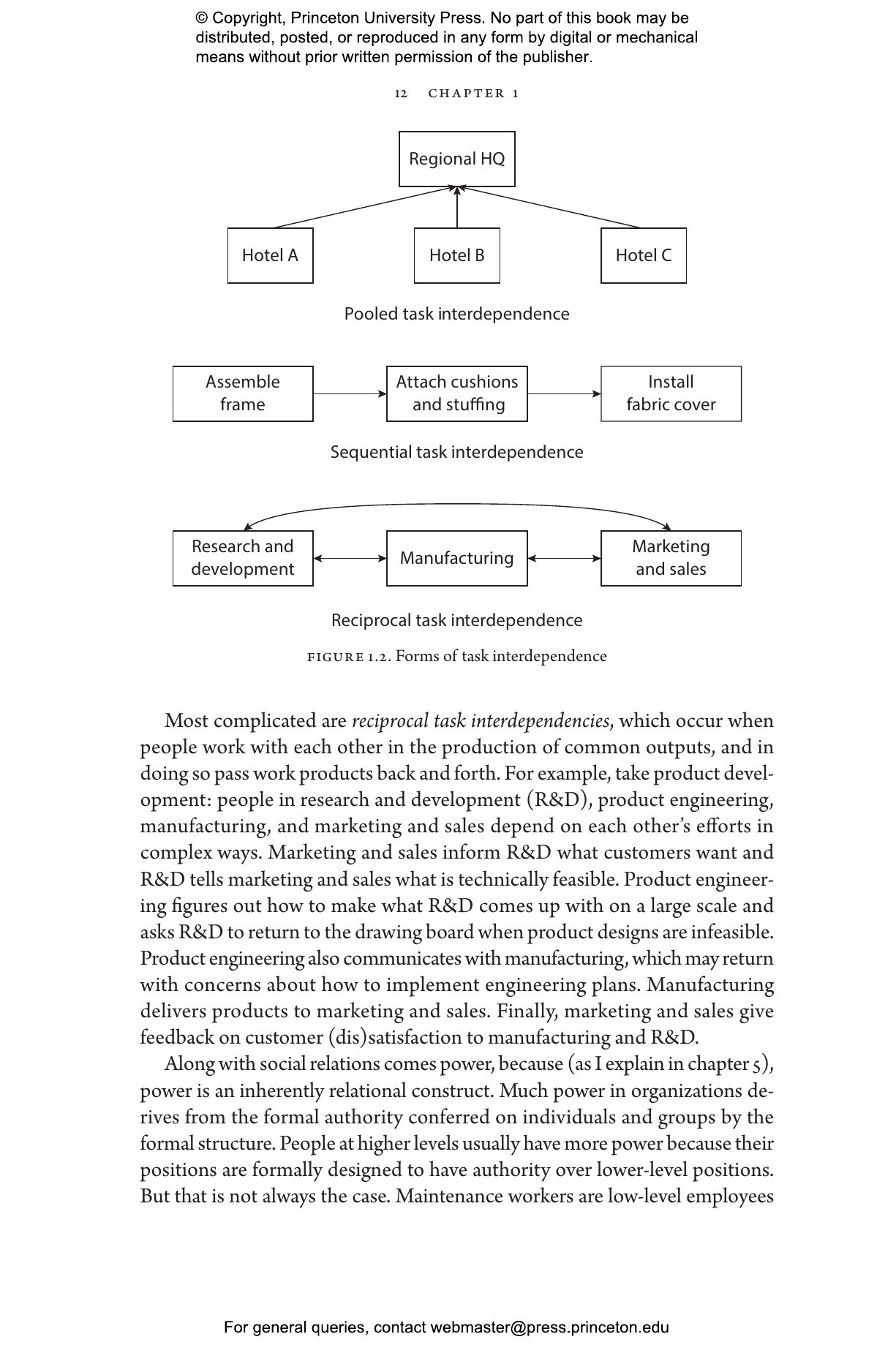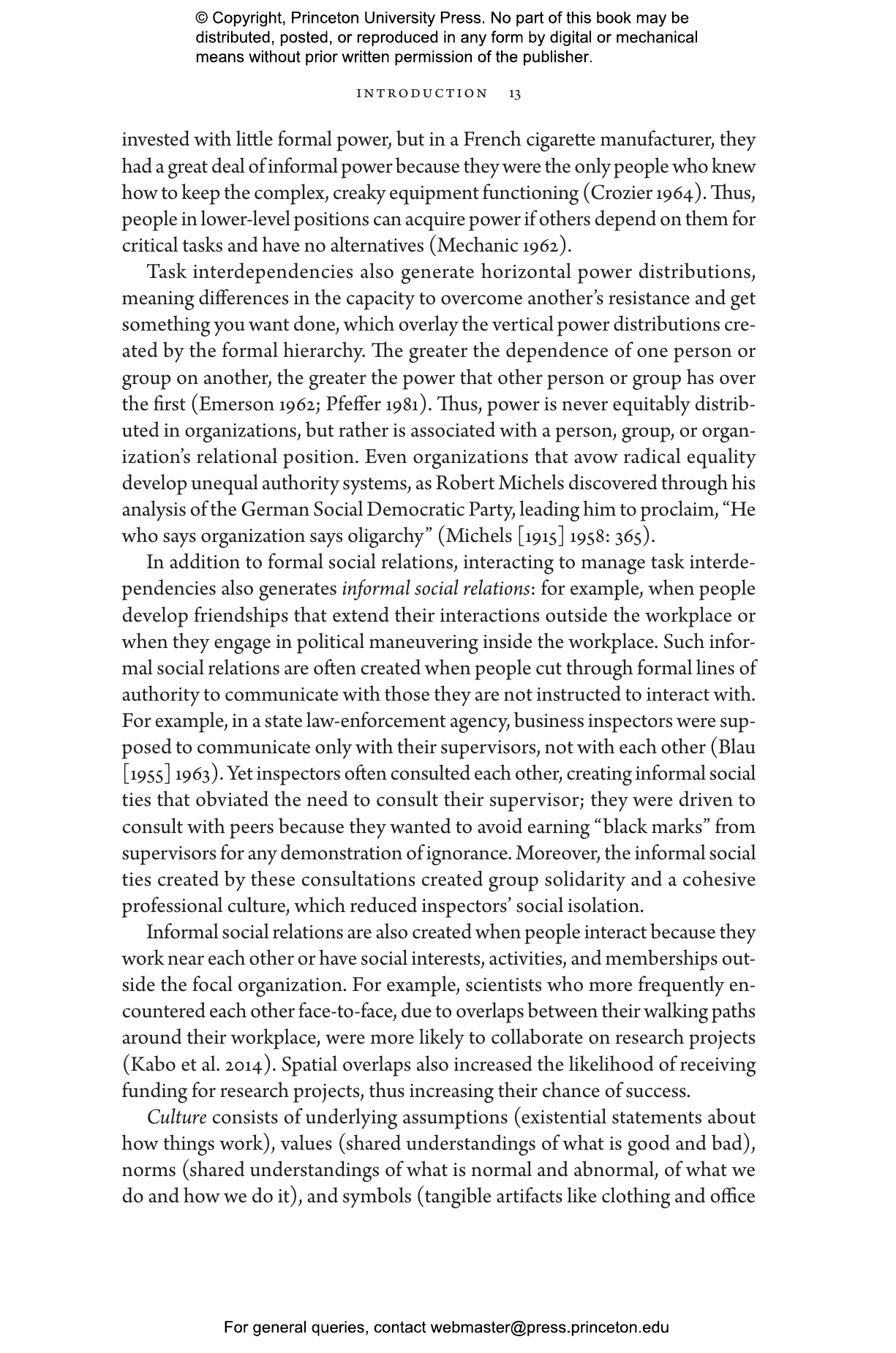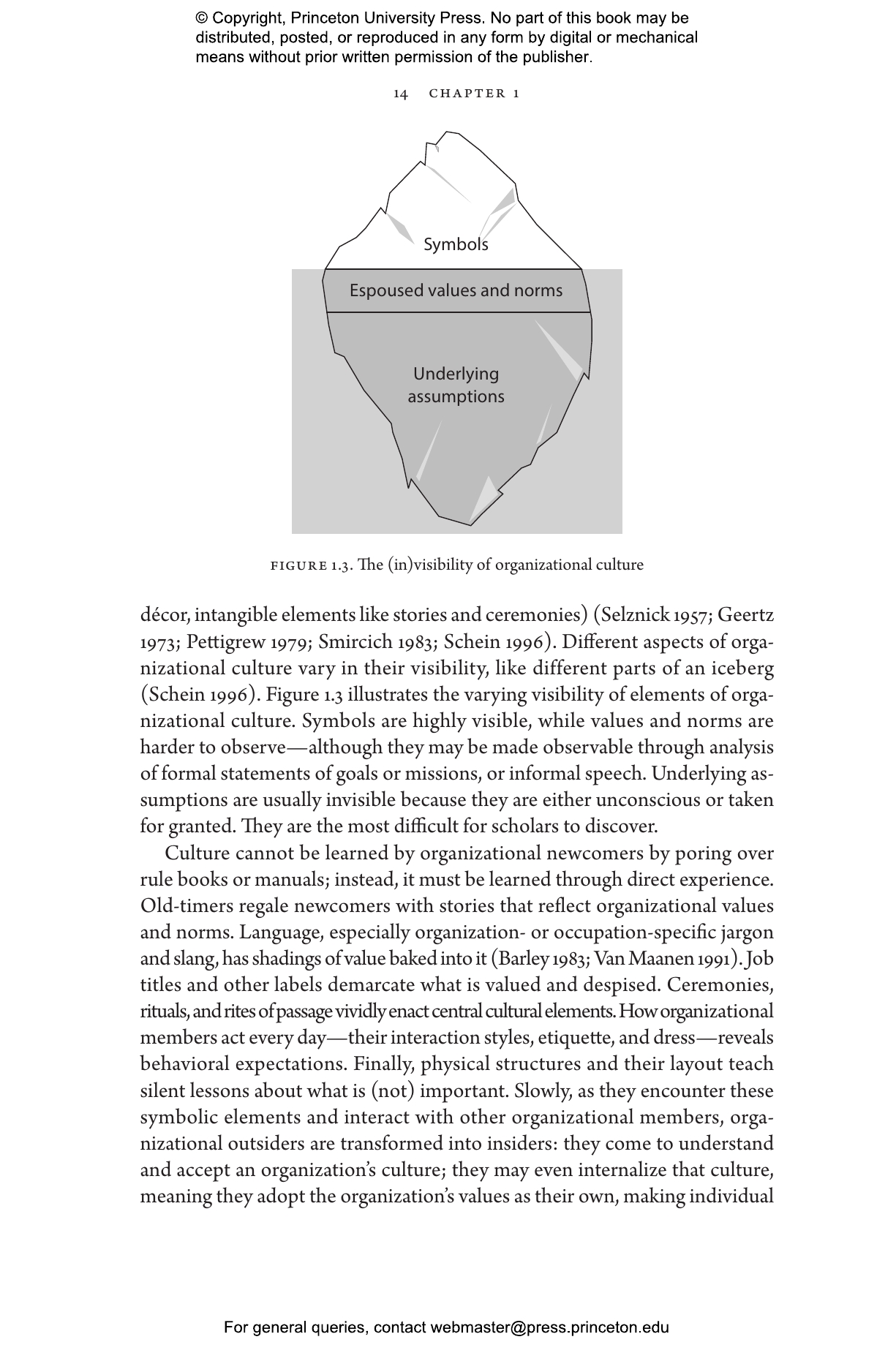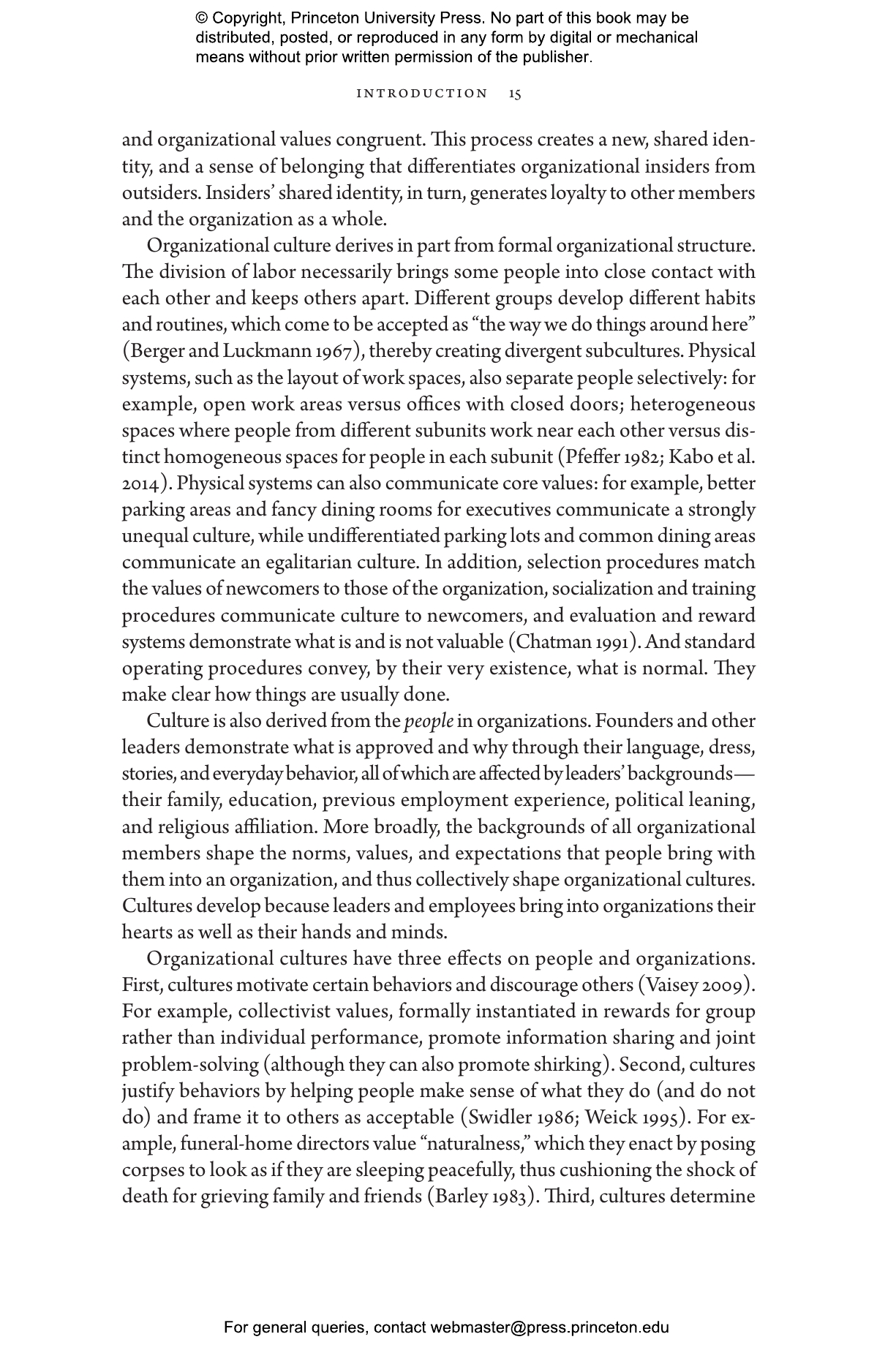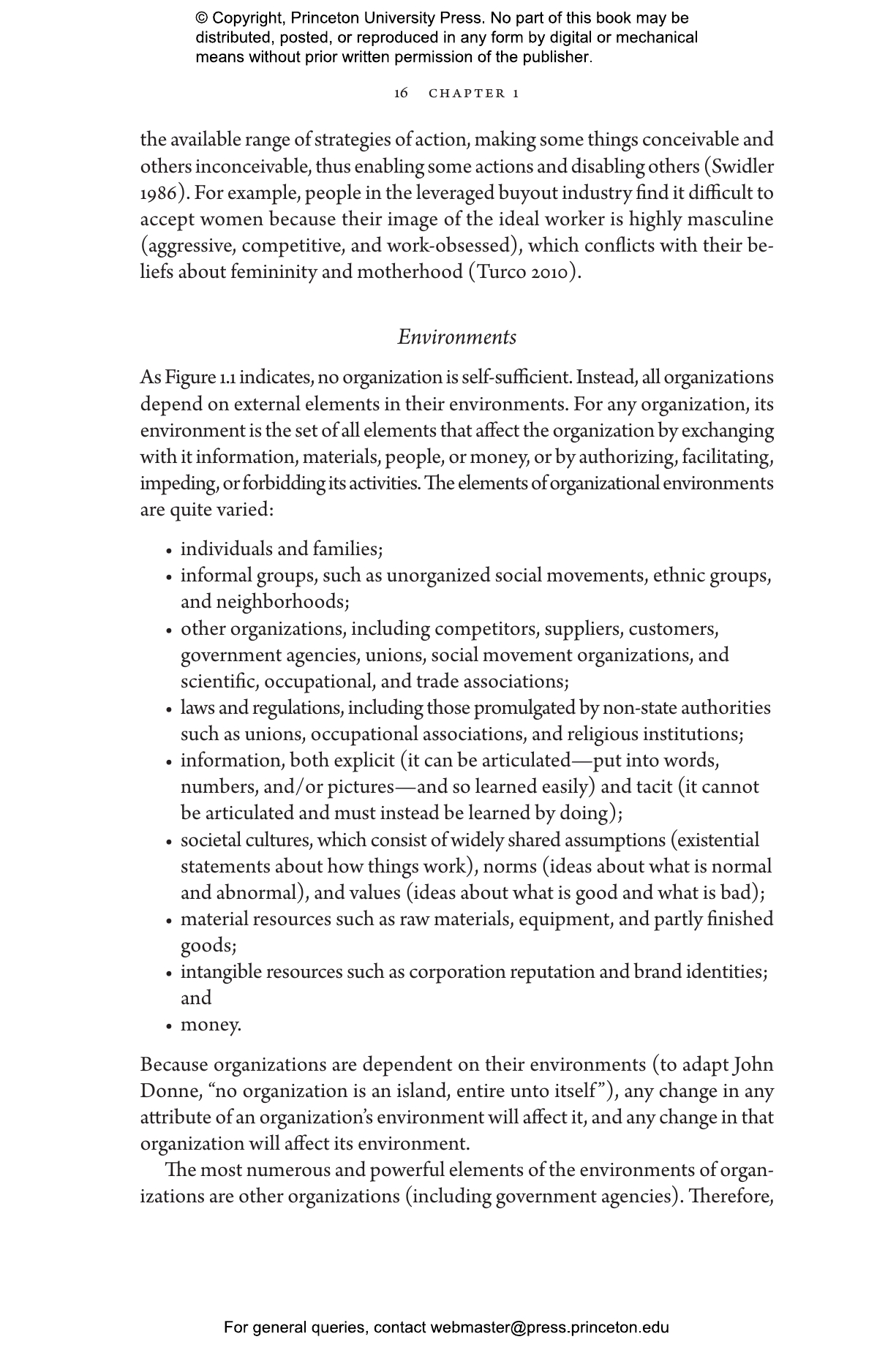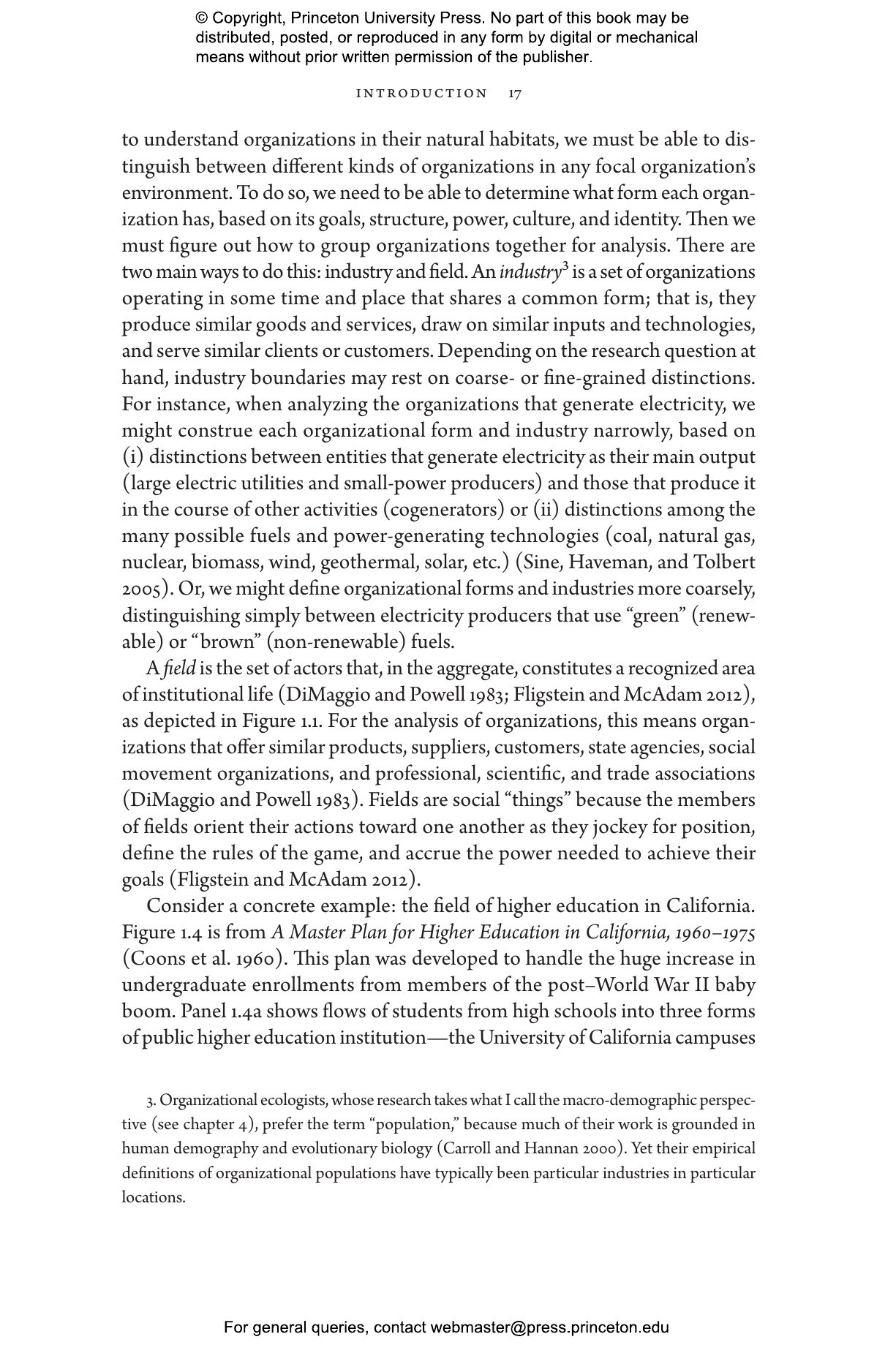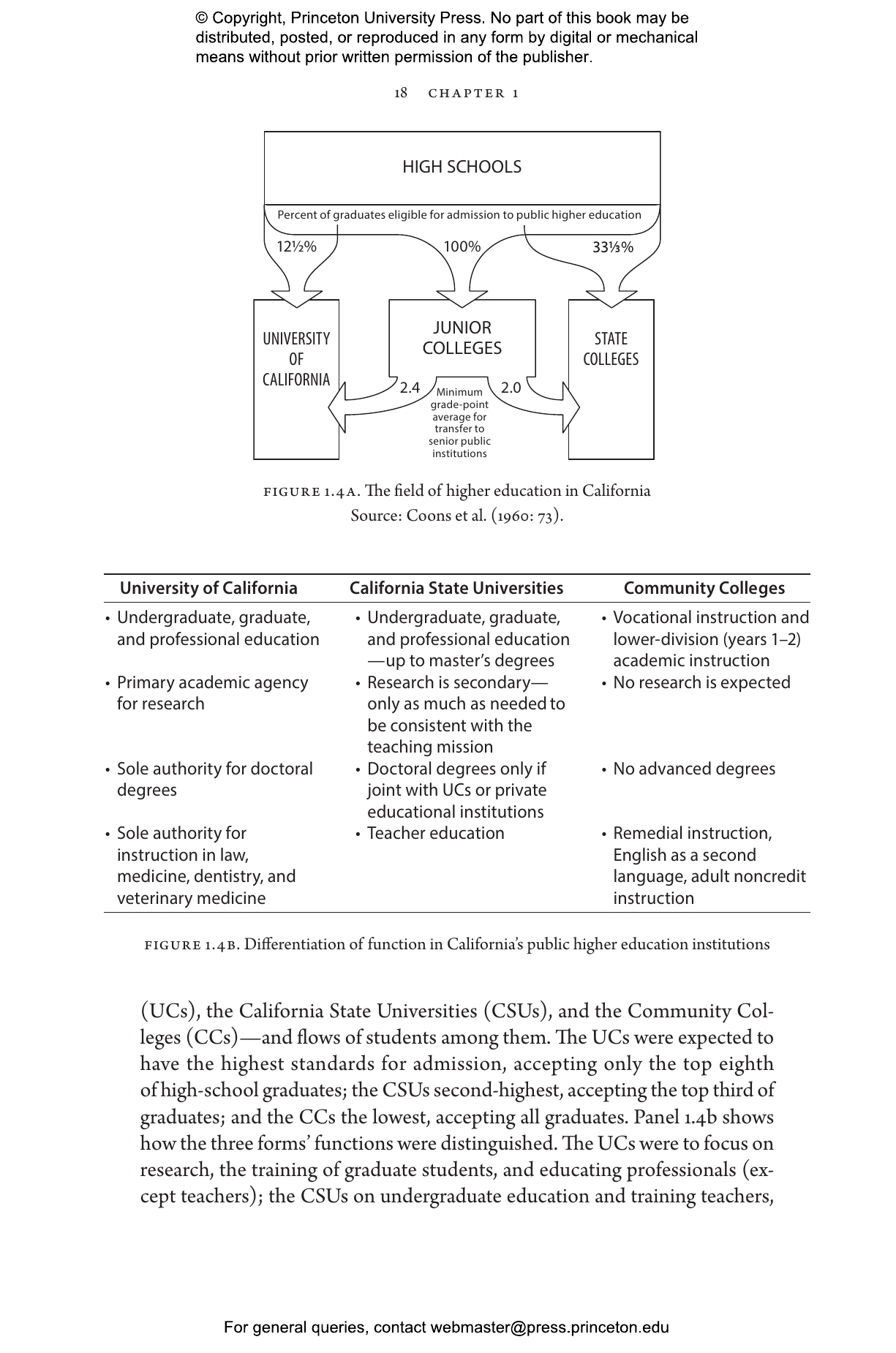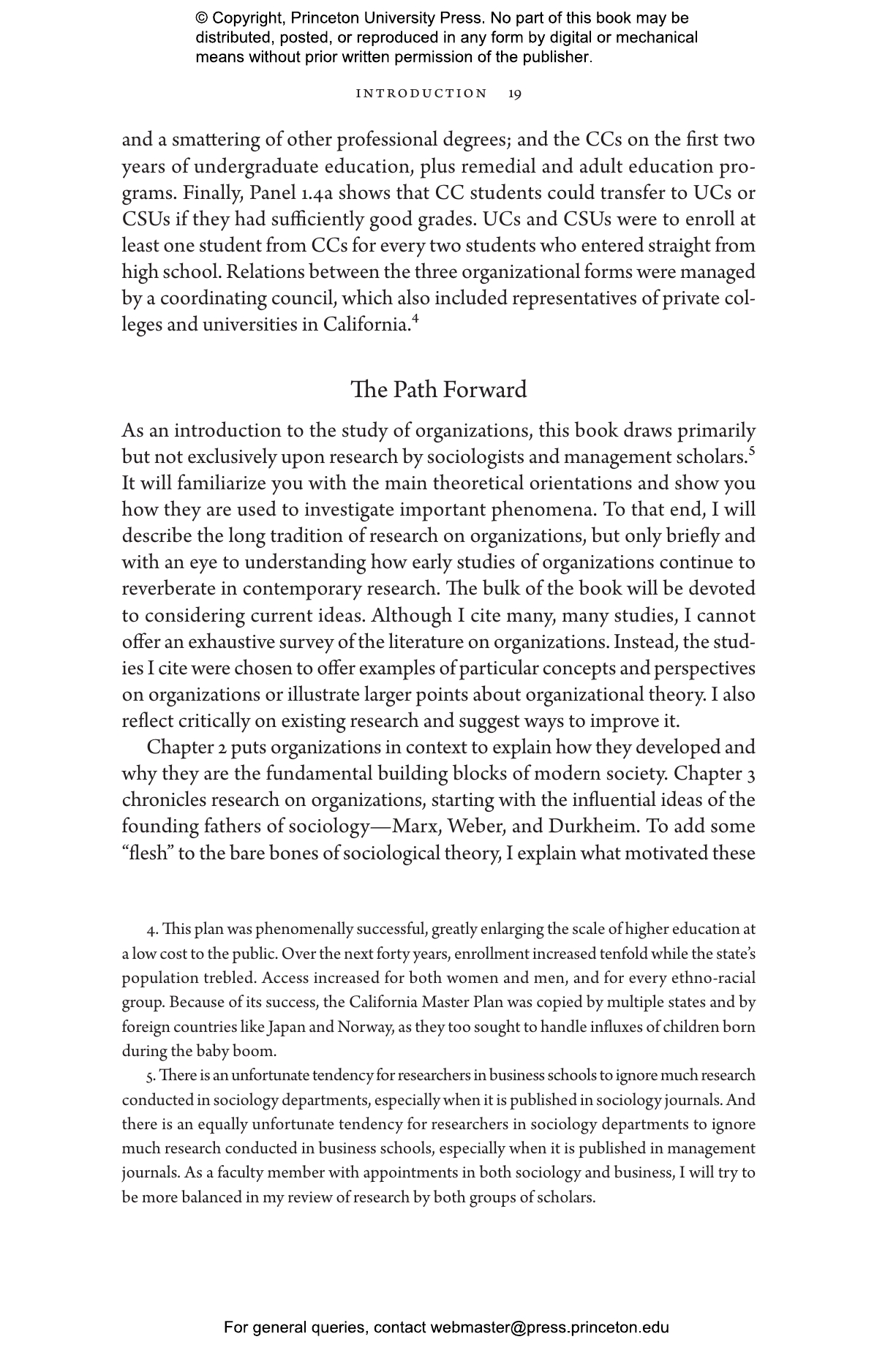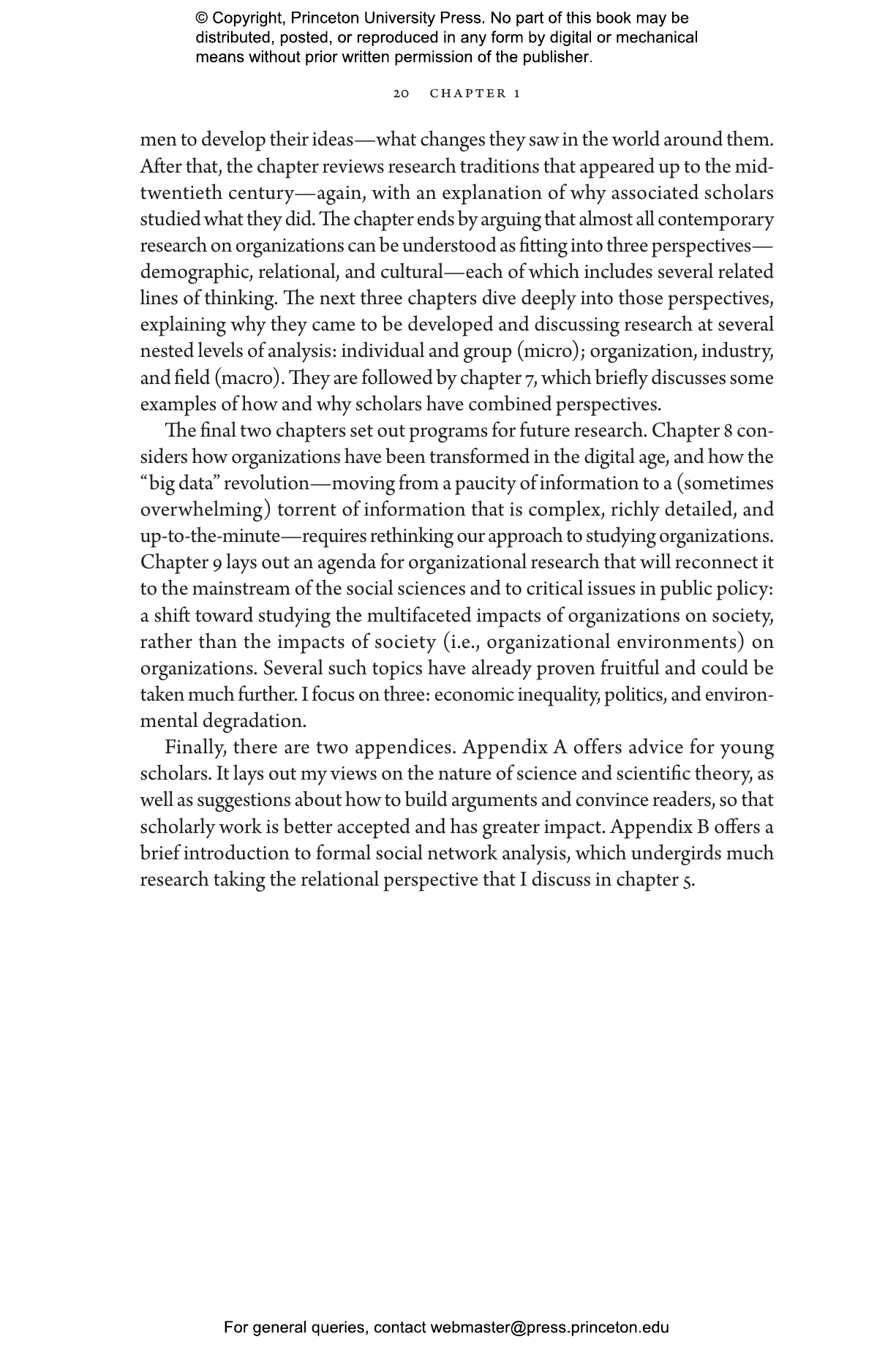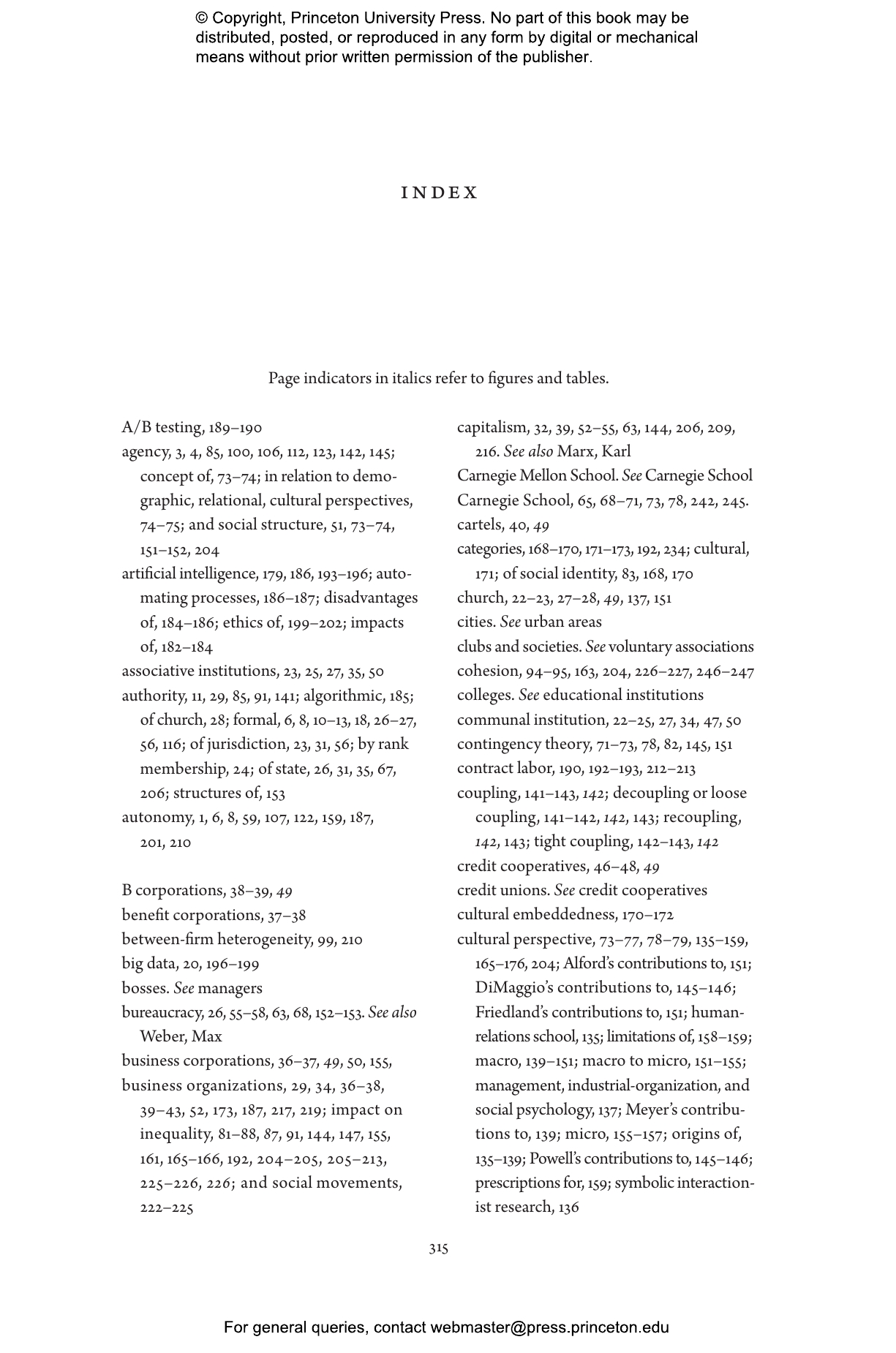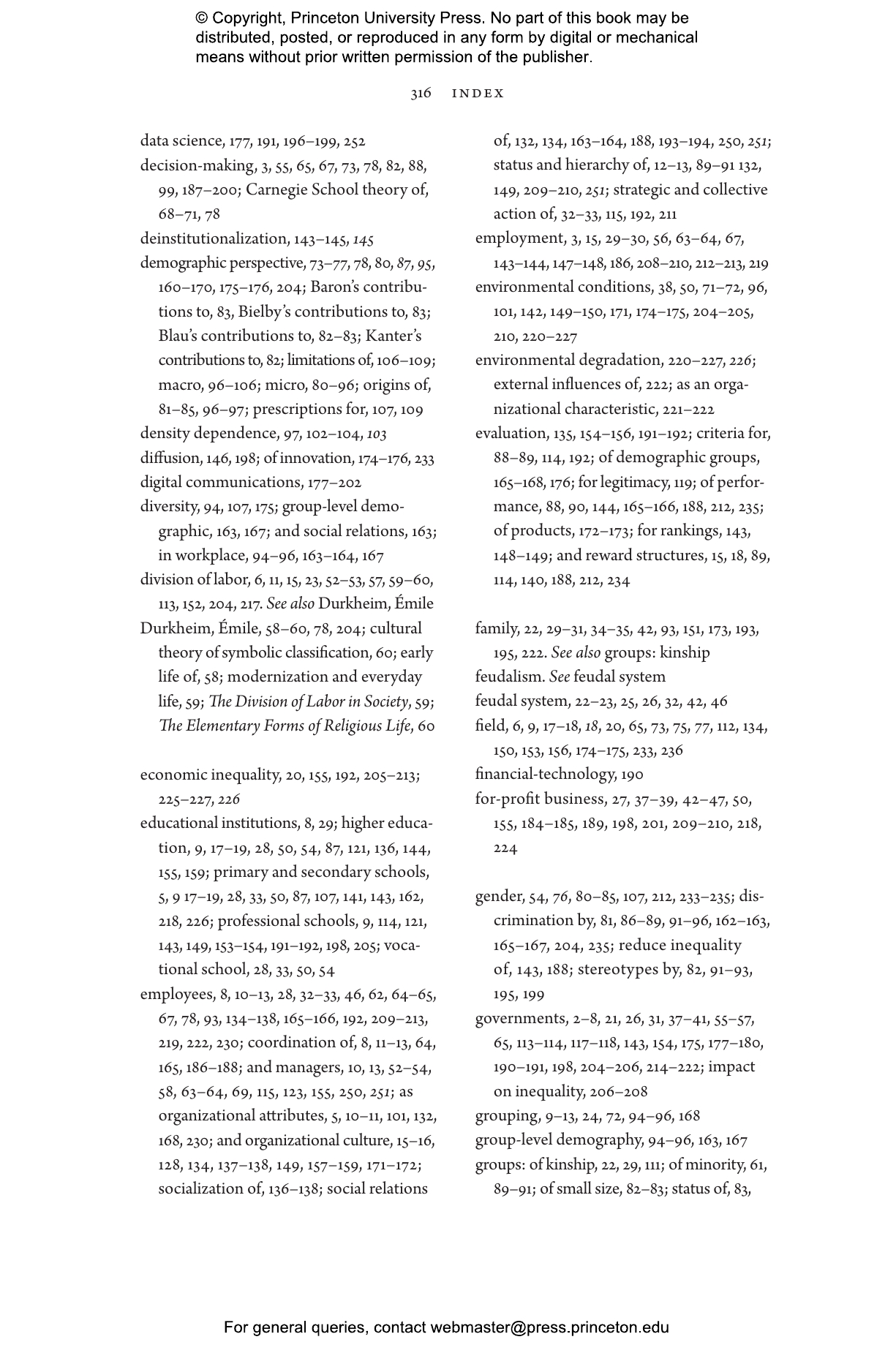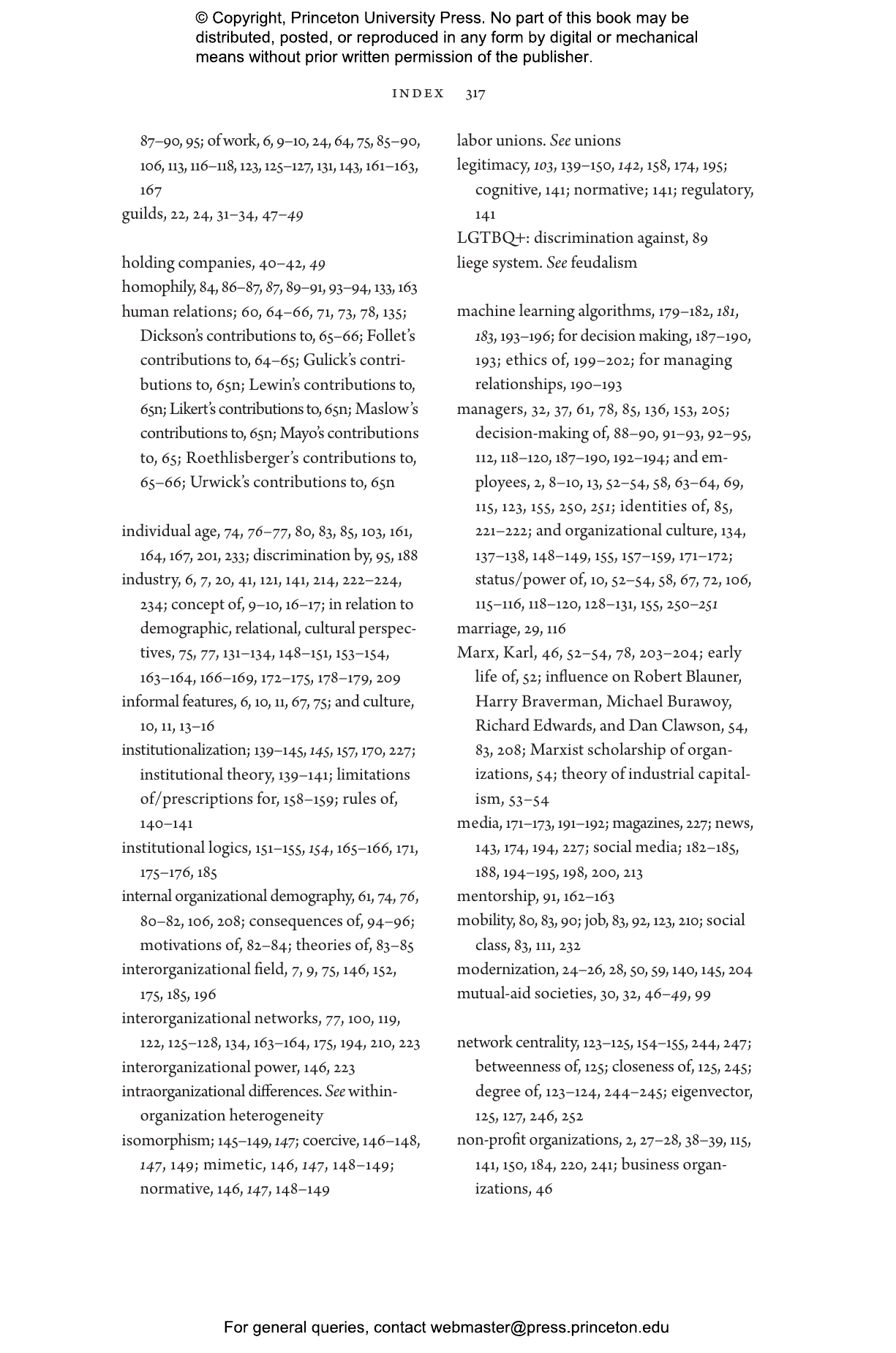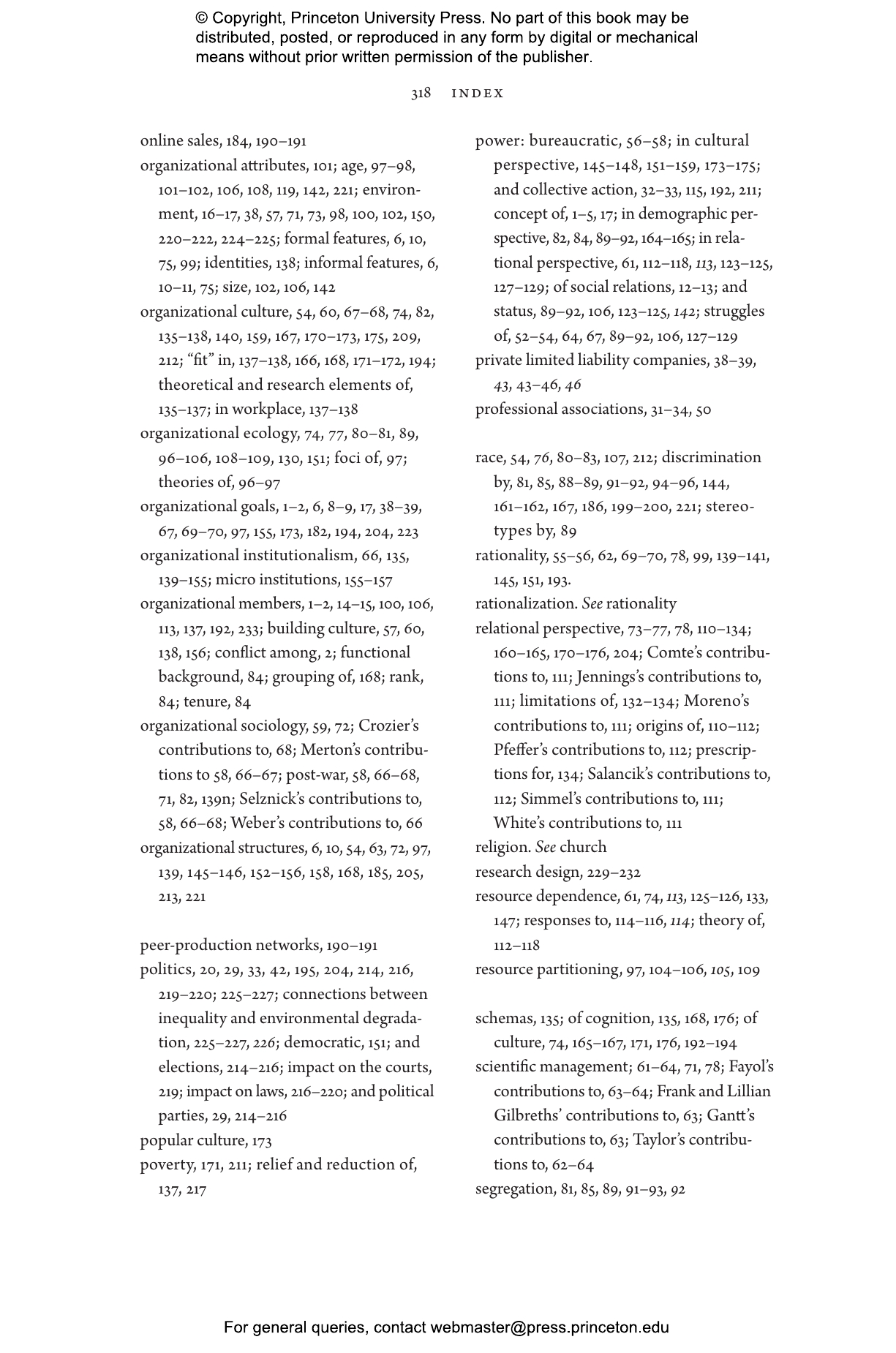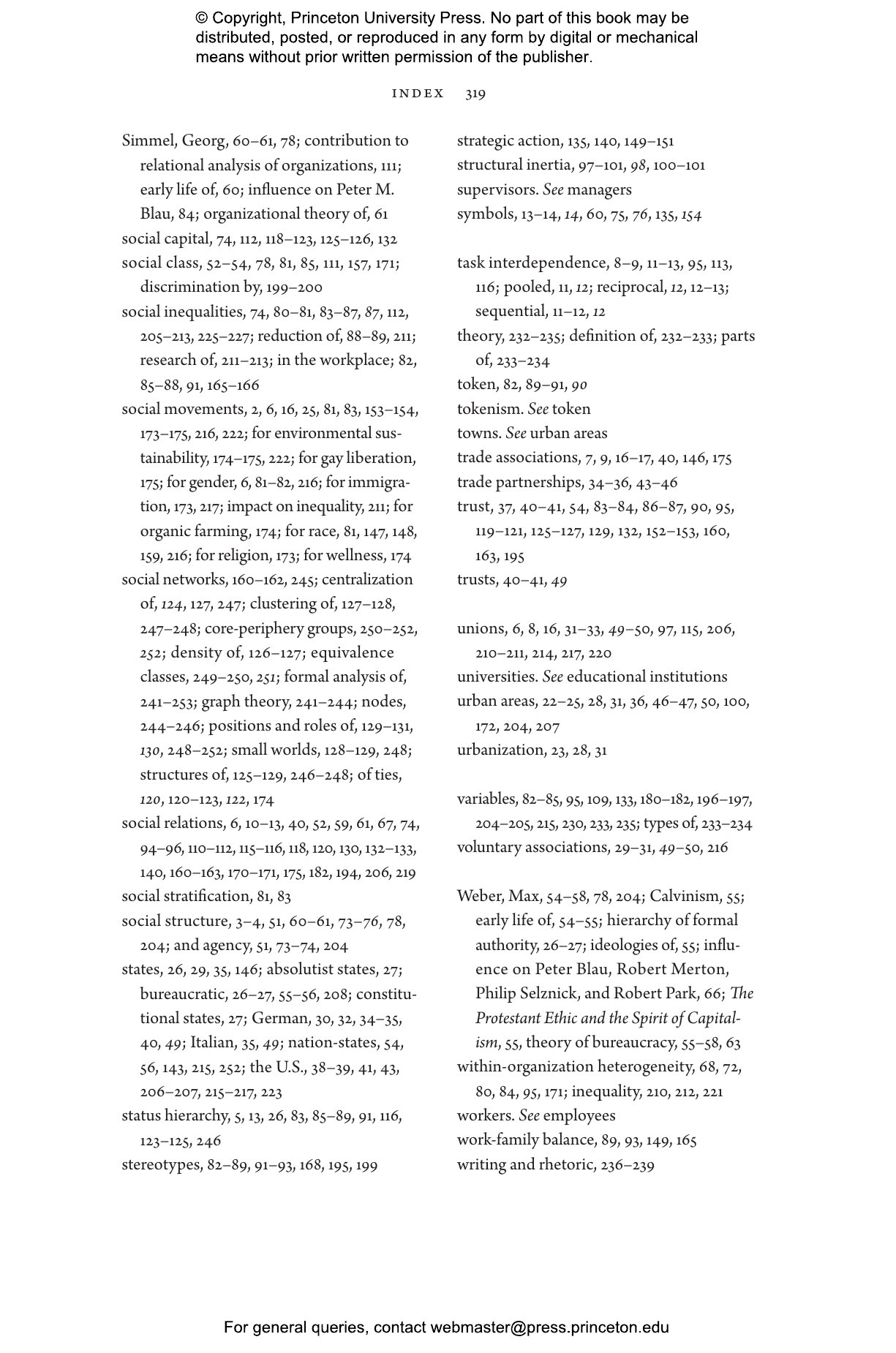Organizations are all around us: government agencies, multinational corporations, social-movement organizations, religious congregations, scientific bodies, sports teams, and more. Immensely powerful, they shape all social, economic, political, and cultural life, and are critical for the planning and coordination of every activity from manufacturing cardboard boxes to synthesizing new drugs and reducing greenhouse gas emissions. To understand our world, we must understand organizations. The Power of Organizations defines the features of organizations, examines how they operate, traces their rise over the course of a millennium, and explains how research on organizations has evolved from the mid-nineteenth century to today.
Heather Haveman shows how almost all contemporary research on organizations fits into three general perspectives: demographic, relational, and cultural. She offers constructive criticism of existing research, showing how it can be remade to be both more interesting and influential. She examines how we can use existing theories to understand the changes wrought by digital technologies, and she argues that organizational scholars can and should alter the impact that organizations have on society, particularly societal and global inequality, formal politics, and environmental degradation.
The Power of Organizations demonstrates the benefits and dangers of these ubiquitous foundations of modern society.
Heather A. Haveman is professor of sociology and business at the University of California, Berkeley. She is the author of Magazines and the Making of America (Princeton).
"Sharp and information-rich. . . . [The Power of Organizations] offers a comprehensive, detailed glimpse of what contemporary organizational theory has become."—Brayden G. King, Administrative Science Quarterly
“This much-needed book provides an expansive overview of organizations from their historical origins to the modern digital age. Haveman’s fresh take on the literature, organized around demographic, relational, and cultural perspectives, offers an accessible and concise framework to understand organizational scholarship. The book is an essential primer and compulsory read for emerging scholars in the field. It directs our attention to the importance of organizations in addressing critical problems in society and offers insightful future directions for the field.”—Christine M. Beckman, University of Southern California
“Organization theory is a sprawling field with fuzzy boundaries. Haveman’s The Power of Organizations is remarkable not only in categorizing the fruits of previous research using demographic, relational, and cultural perspectives on organizations, but also in planting the seeds of ideas for much-needed research on the impact of organizations on society.”—Anand Swaminathan, Goizueta Business School, Emory University
“The Power of Organizations is comprehensive in terms of covering the views on organizations over the past few decades. Haveman stays true to each perspective’s original arguments, more so than any other overview I’ve encountered.”—Olav Sorenson, University of California, Los Angeles
“Haveman is a major figure in the field of organizations, and The Power of Organizations will prove valuable for both students and researchers. The author demonstrates a staggering level of knowledge, and this impressive book offers outstanding coverage of an extremely broad literature, in a compelling and accessible form.”—Mark Mizruchi, author of The Fracturing of the American Corporate Elite
